What’s it like living in Huelva?
Huelva is little know among foreigners looking to find a base in Spain. But it is increasingly becoming popular, mostly because of its relaxed pace of life and its beautiful beaches.
In this interview, Arbora tells us all about Huelva and what brought her there. She gives us tips, resources and even some interesting history on the city.
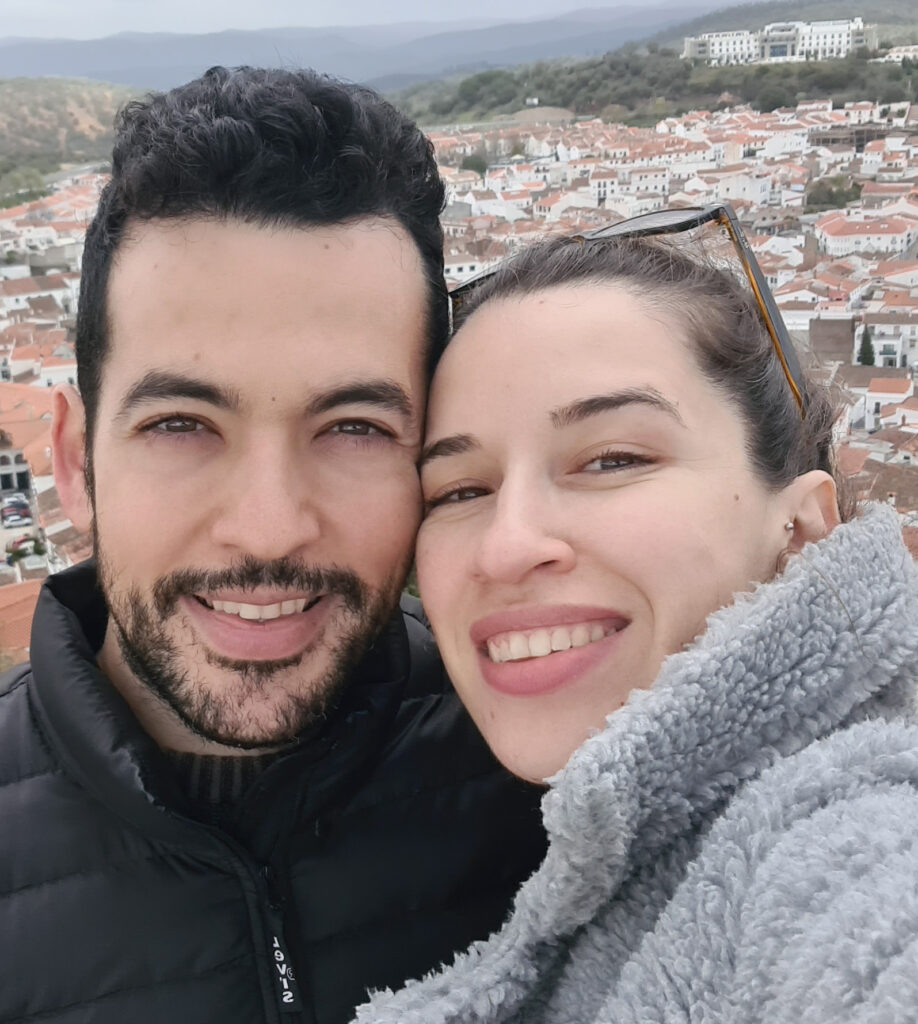
Name: Arbora Hajdini
Age: 29
Country of Origin: Albania
Number of years in Spain: 1
Hi Arbora! Please tell me about yourself and on how you all ended up moving to Spain
After living in Germany for five years, I never imagined I would be calling Spain my new home. I’m originally from Albania, and in October 2023, I moved to Huelva with my husband, whom I married last December. The move came after he expressed a desire to return to his roots in Huelva after many years of living abroad. At first, the idea of relocating wasn’t exactly appealing to me—I had just settled into life in Germany, and I wasn’t ready for another big change. But over time, I warmed to the idea, especially when I considered the perks of Spain’s beautiful weather, the amazing food, and the fact that his family would be nearby. Since we were already planning on starting a family, having support close by seemed like the perfect solution.
Now, we are eagerly awaiting the arrival of our first child (due on New Year’s Eve) and preparing for this exciting new chapter. My time in Berlin shaped much of my career, where I worked and studied in finance for nearly five years. I hold a degree in Finance, along with two Master’s—one in Accounting and another in International Finance. While the decision to move to Spain was largely for love, I’m also embracing the country’s lifestyle and looking forward to building our future here.
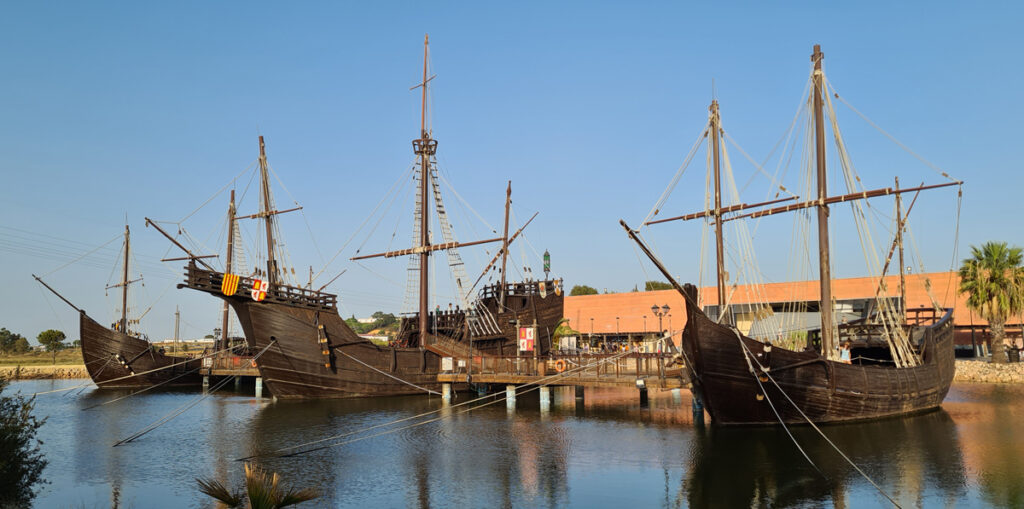
You’re in Huelva which I’m sure not many people have heard of. Why Huelva? And how would you describe the city?
Huelva may not be as well-known as other Spanish cities, but it has a charm and character that truly make it special. The reason we chose Huelva is quite personal—my husband is originally from here, and after living abroad for many years, he wanted to return to his roots. As I mention above, I quickly understood why it was the perfect place for us.
As for the city itself, Huelva is a hidden gem in Andalusia. It’s a smaller, coastal town with a relaxed pace of life, perfect for anyone looking to escape the hustle of bigger cities. The beaches here are some of my favourite places to unwind. Mazagón Beach is my personal favourite, offering fewer waves and warmer water, making it perfect for a calm, relaxing day by the sea. For those seeking more adventure, Punta Umbría and Isla Cristina are great options, with a mix of vibrant atmospheres and stunning sands. Because Huelva sits along the Atlantic Ocean, it’s also a popular spot for surfing, with plenty of locals and visitors hitting the waves, especially on windier days. Huelva’s connection to nature, history—particularly with Christopher Columbus—and its welcoming community make it an ideal destination for anyone looking to enjoy the Andalusian lifestyle in a more authentic and peaceful setting.
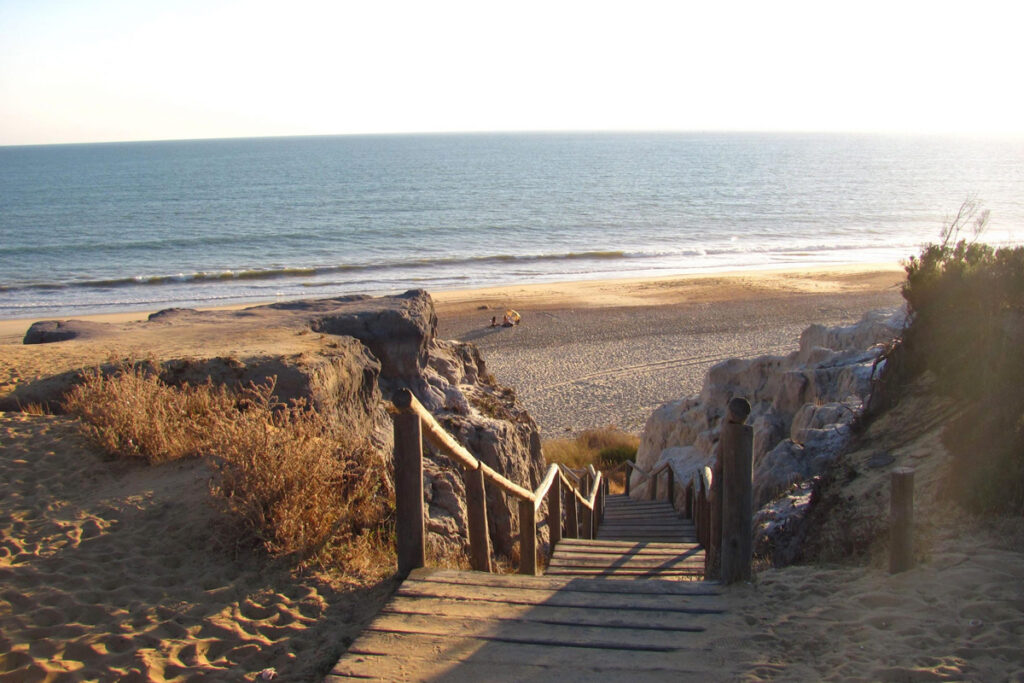
How do you like Huelva? What’s the best thing about living in Huelva? What are the worst aspects of living there?
I’ve really grown to love Huelva since moving here. It has a peaceful, laid-back atmosphere that’s hard to find in bigger cities, and it’s a great place to enjoy nature, whether it’s spending time at the beach or exploring the surrounding parks and countryside. The best thing about living in Huelva is definitely the proximity to beautiful beaches like El Portil, Punta Umbría, and Isla Cristina, as well as the amazing weather. It’s also a very authentic Spanish town with delicious local food and a slower pace of life, which makes it perfect for anyone looking for a more relaxed lifestyle. The people are warm and welcoming, and the connection to Andalusian culture is something special—I’m especially excited to start Flamenco dancing classes next year!
However, living in a smaller city like Huelva does come with its challenges. For one, the job market can be limited, especially in specialised fields like finance, which can make finding work more difficult compared to larger cities. Additionally, while I enjoy the slower pace of life, it can sometimes feel a bit too quiet, especially if you’re used to the energy of a bigger city like Berlin. Despite these minor downsides, the quality of life here—good food, close to nature, and a strong sense of family and community—far outweighs the negatives for me.
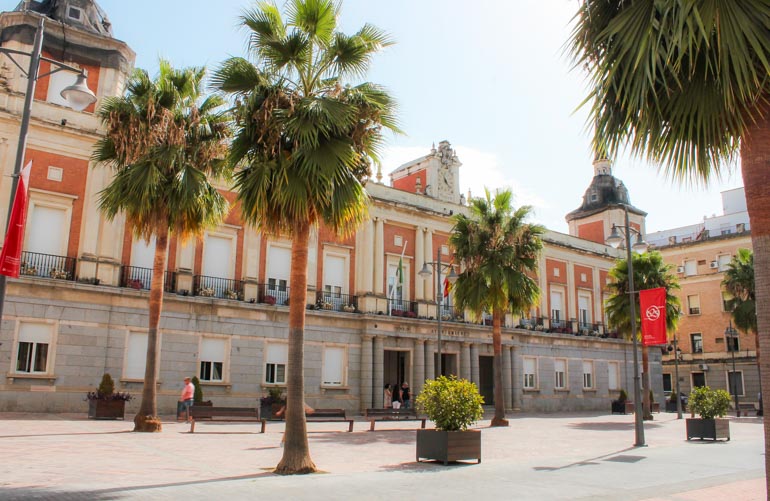
Does Huelva have an expat population at all?
Yes, Huelva does have an expat population, especially after the pandemic, as my husband has pointed out. I’ve noticed quite a few people speaking English or German in the city center, and even in smaller villages like Bellavista, which shows that the expat community is growing. There’s also a really nice local initiative called OLE Intercambio de Idiomas Huelva—a Facebook group where expats and locals meet twice a month to practise languages and connect with each other. It’s great to see such a strong turnout at these meetings, and it’s definitely on my list of things to do soon! It’s encouraging to know there’s a welcoming and active expat community here, making it easier to integrate into life in Huelva while meeting new people.
I’ve met some incredible people through the Bumble app, and it’s been such a great experience. For example, we’ve explored several places together, like the British Week in Huelva, where a British band performed all of Coldplay’s songs in the English Quarter. The atmosphere was fantastic! You might be wondering why Huelva has a British district. Well, in the past, the British came to Huelva to extract minerals, especially from the Rio Tinto mines. In Huelva there’s even a bridge over the river that was once used to transport minerals to the ships called el Muelle de Riotinto. And for football fans, here’s a fun fact: El Recreativo de Huelva, Spain’s oldest football club, was founded thanks to the British influence! 🙂
Another cool fact about Huelva is that the metal rock scene is strong, with many associations where bands can rehearse, collaborate, and perform. These spaces help local talent grow, letting musicians improve and create unique styles. Regular concerts and events bring together passionate metal fans, making Huelva a lively spot for heavy music and exciting shows. Here is one of the social clubs that I know and it is quite famous: Huelva Rock . The relatives of my husband have their own band and play there. They even play English songs and although I am not a huge fan of metal music, I think they are very talented.
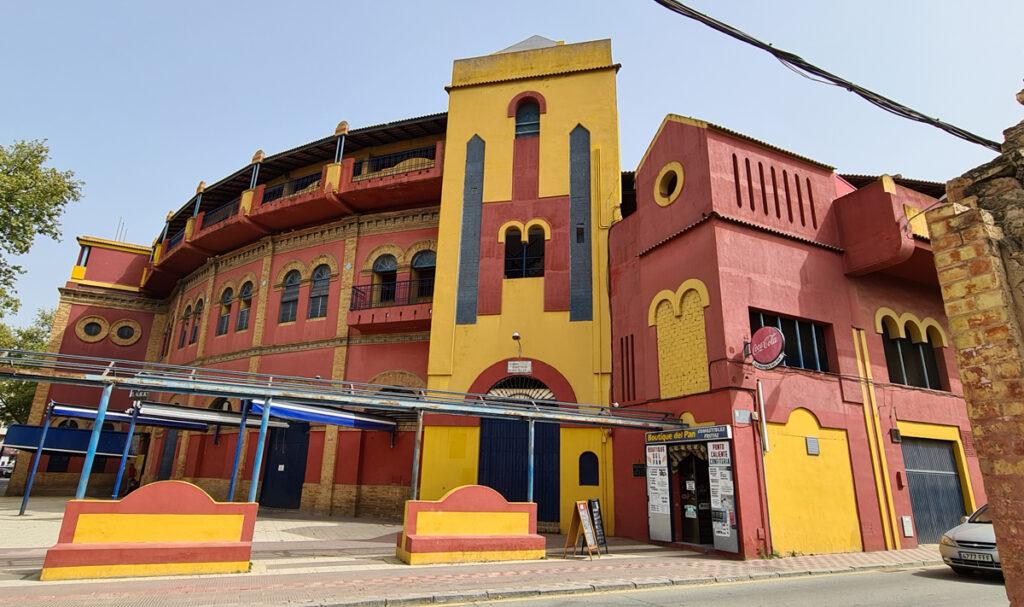
I know you’re Albanian and that you also lived in Berlin for 5 years. How has it been moving to Spain? Any culture shock? Any difficulties?
In many ways, moving to Spain has actually reminded me a lot of Albania. The relaxed pace of life, the strong emphasis on family, and the way people take time to enjoy their meals and socialise are all very similar to what I grew up with in Albania. Both cultures value spending time with loved ones and prioritise a healthy work-life balance, which has made the adjustment a bit easier for me. The warmth and hospitality of the people here in Huelva feel familiar—just like in Albania, the locals are very welcoming and transmit a very positive energy.
Even the small-town vibe of Huelva, with its slower pace and tight-knit community, feels close to home. However, there have been some cultural shocks along the way. One significant adjustment has been the siesta culture, where many shops close in the afternoon, and people tend to have lunch and dinner much later than I’m used to. Additionally, while I speak Spanish, not everyone here speaks English, which forced me to improve my language skills significantly. The thing that helped me the most with the Spanish language was the fact that I used to watch a lot of Latin TV series (telenovelas) as a teenager.
Another challenge has been navigating the residency process—there isn’t much information readily available and it seems the migration office often prefers working with a migration lawyer rather than directly with individuals seeking residence permit.
Coming from Berlin, where life was much more fast-paced and everything felt more structured, the change took some getting used to. Berlin was an incredible place to live, full of energy and diversity, with a vibrant arts scene and a strong entrepreneurial spirit. However, it could also feel overwhelming at times, with its bustling atmosphere and constant activity. The friendly nature of the people here in Huelva, always ready to greet you with a smile and engage in conversation, has made the transition to life in Spain feel more natural and enjoyable. It’s a wonderful change of pace that allows me to appreciate the little things in life while still feeling a sense of connection.
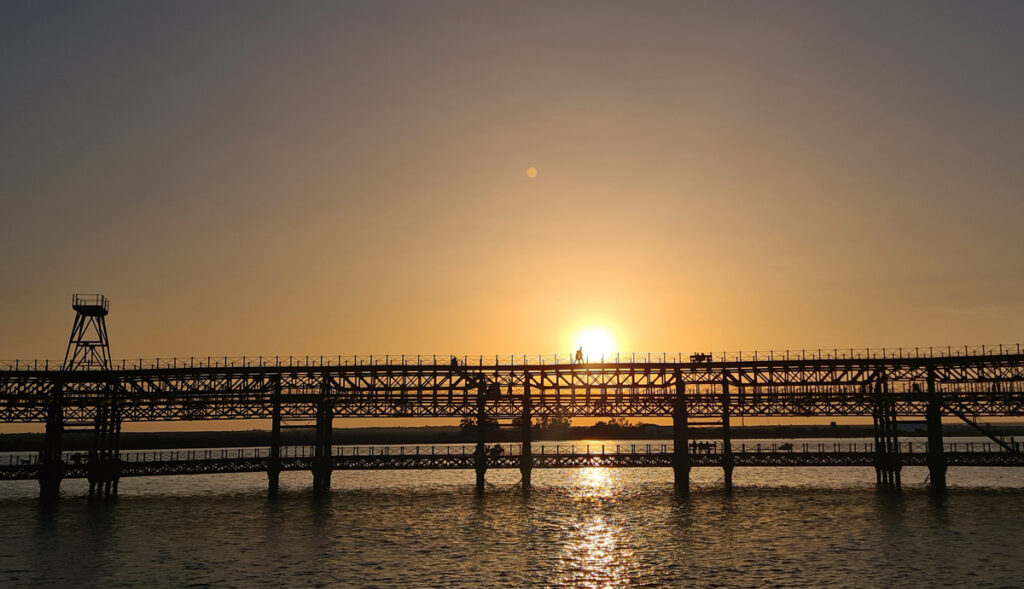
You’ve mentioned to me that you have a background in finance and that you worked in accounting and international finance during your time in Germany. How has it been trying to find work in Huelva? What are your options?
Finding work in Huelva has been quite challenging for me, especially given my background in finance, analysis, and international finance. The job market here is limited, particularly in specialized fields like mine. Unfortunately, I am currently unemployed, which has been a bit disheartening, especially after having built a solid career in Germany. My plan is to teach English or German while I continue searching for something more aligned with my professional background. I’ve also set up a meeting with the local development office (desarrollo local), which provides support in areas like career guidance. I’m hopeful to see what opportunities this might open up for me.
Given the local job market, I am focusing my efforts on finding a remote job. This would allow me to leverage my skills and experience without being tied to the limited options available in Huelva. I believe that working remotely could provide the flexibility I need while still being able to enjoy everything that living in this beautiful city has to offer.
While the situation is not easy, I’m hopeful that I’ll find a suitable opportunity that aligns with my expertise in finance and allows me to contribute effectively.

What are your favorite things to do in Huelva? How do you spend your free time?
There’s always something happening in Huelva and the surrounding areas, which makes it a great place to explore different events and cultural activities. Recently, I had the chance to watch the famous ballet “Swan Lake” in Isla Cristina, which was an incredible experience. Before that, I attended an event organized by the Junta de Andalucía—the Seville Symphony Orchestra, where they performed two of Beethoven’s symphonies. I absolutely loved it! One of the best things about these events is that the ticket prices are very reasonable, making it easy to enjoy high-quality performances.
I also love attending the ferias in the nearby villages, like San Antonio in Bellavista, Cervantina in Gibraleón, and the Feria de Cartaya. Each has free entrance, and they’re a fantastic way to try local food, experience Andalusian culture, and connect with the community. Another favorite is la Romería de El Rocío, where you can really immerse yourself in the vibrant flamenco vibes, with music, dancing, and, of course, stunning horses. If you want, you can also do the pilgrimage from a particular point in Spain to the village of Rocio. It’s a beautiful celebration of Andalusian tradition held yearly, 50 days after Easter, and the festive atmosphere is always a highlight!
Some of the typical foods to try in Huelva are truly special, starting with fried squid (choco frito), which is a local favorite. There’s also arroz con choco—a version of paella, but with squid as the star ingredient, as squid is not only popular in the cuisine but also a symbol of the city. Another must-try is the famous ham from Jabugo, a town in Huelva known for producing what I think is the best ham I’ve ever tasted.
White shrimp is also a delicacy here and very well-known, although it’s usually reserved for special occasions like Christmas because of its higher price. These foods reflect the rich culinary traditions of the region, making Huelva a great place for food lovers to explore!
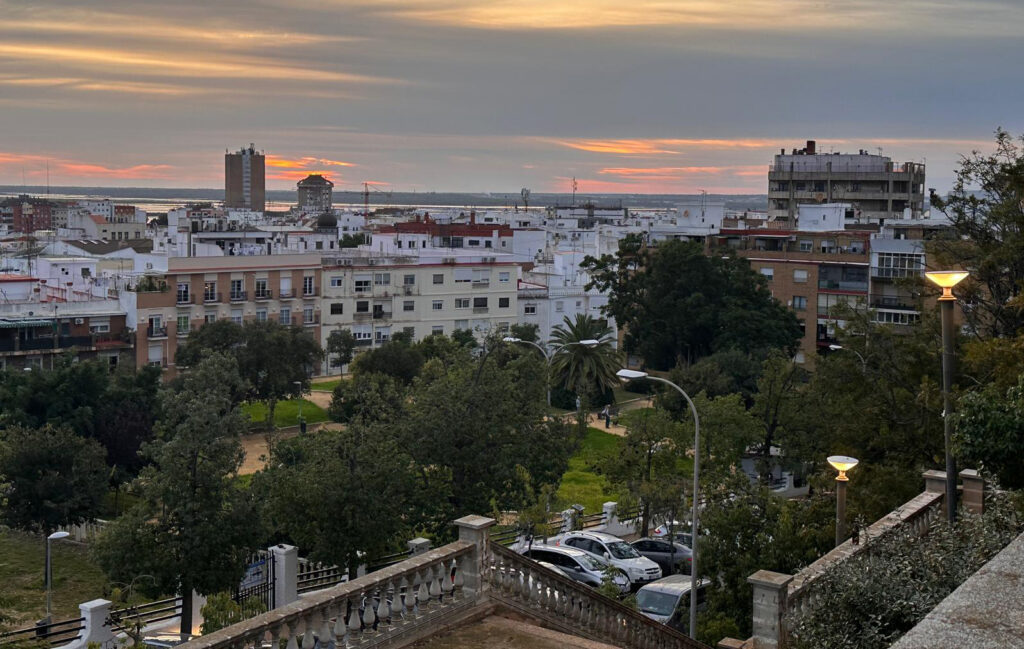
I know you’re expecting your first child. Congratulations! You’ve mentioned looking forward to the next chapter in your lives. Can you tell me about that? Do you plan on staying in Huelva and Spain in the long term?
Thank you so much for the kind words! We’re beyond thrilled about this new chapter in our lives with our first child on the way. It’s a journey we’ve long dreamed about, and now that it’s happening, we’re filled with excitement, anticipation, and a bit of awe.
Our plan is very much to grow old here in Huelva. We’ve put down roots in a big way by buying a house, and that’s made it feel even more like our forever home. We love the rhythm of life here, the strong sense of community, and the values that are so ingrained in Spanish culture—especially the importance of family and connection. We can already picture our child growing up surrounded by all of this, and that makes us feel so grateful.
That said, life has a funny way of surprising us, and while our hearts are here for the long term, we’re always open to whatever the future might bring. For now, though, we’re embracing every part of this incredible moment and looking forward to the many memories we’ll create in our little corner of Spain.
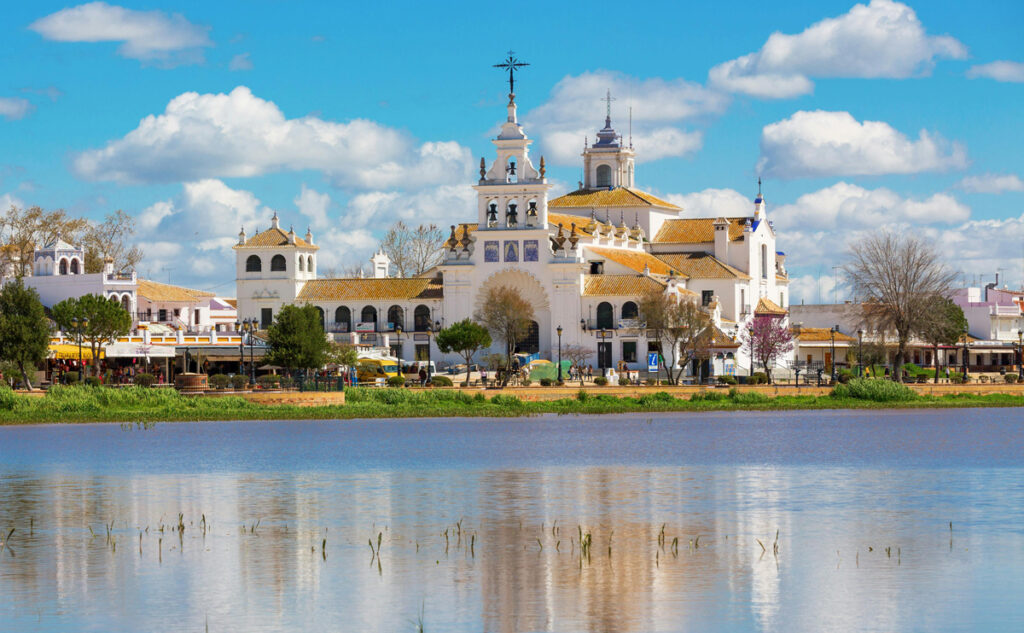
Do you ever miss Albania or Germany?
Yes, I do miss both Albania and Germany, but for different reasons. I miss Albania because it’s home—it’s where I grew up, and I have so many fond memories tied to the people, my family, and the familiar surroundings. There’s a certain comfort in being around the people you’ve known your whole life that I do miss.
As for Germany, I miss the vibrant mix of cultures. Living in Berlin, I was constantly surrounded by diversity, with people from all over the world, which made the city feel dynamic and full of life. That multicultural atmosphere really enriched my experience there, and it’s something I sometimes miss in Huelva.
I also miss the incredible diversity in Berlin, especially when it comes to the wide range of cuisines you can try from all over the world. The city’s food scene is amazing—whether you’re craving Turkish, Vietnamese, or Italian, you can find it all. Once for instance I tried Mongolian food which is a very unique cuisine. Berlin’s unique mix of hipster style, modern trends, and the vibrant techno scene really gave the city its distinct energy. That blend of creativity, culture, and nightlife made it such an exciting place to live, and it’s something that’s hard to replicate elsewhere.
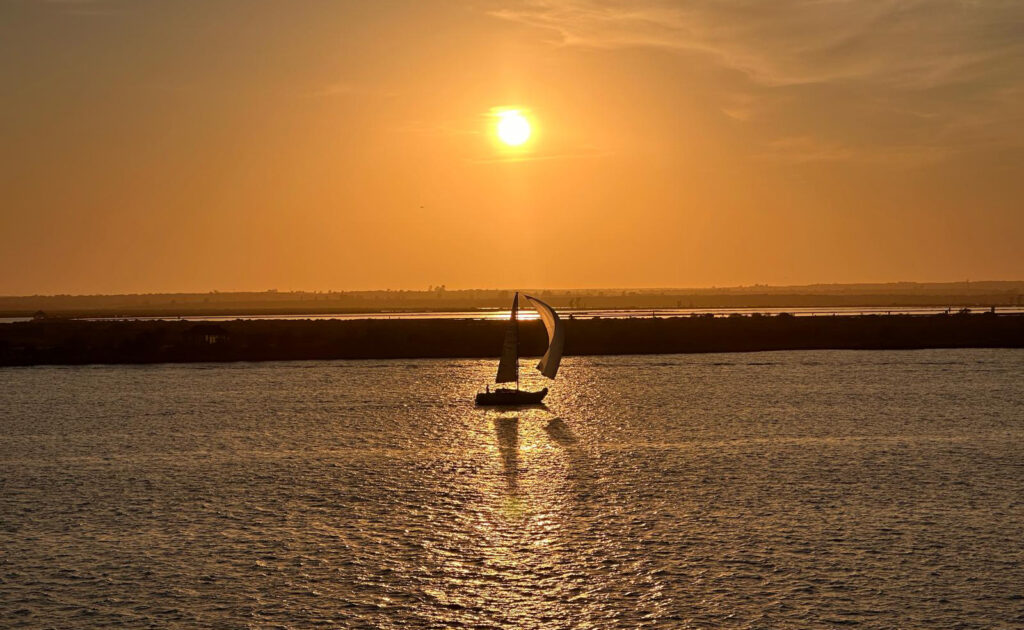
I mentioned at the top that most people considering where to base themselves in Spain have probably never heard of Huelva. In your opinion, why do you think it might make a good base for people? Is there a certain demographic or type of person who would be well suited to live in Huelva?
Huelva might not be as well-known as other Spanish cities, but that’s part of its charm. It offers a more relaxed, authentic Andalusian lifestyle, perfect for those looking to escape the hustle and bustle of bigger cities like Madrid or Barcelona. With beautiful beaches, fantastic weather, and a lower cost of living, it’s an ideal base for people who enjoy nature and a slower pace of life. Outdoor enthusiasts will love being close to the coast and natural parks, and for those who enjoy travel, Portugal is just a short drive away, making it easy to explore another country by car whenever you’re in the mood for a quick getaway.
Huelva is particularly well-suited for retirees, remote workers, and families who appreciate a peaceful environment, while still being close to cities like Seville for a taste of urban life. The lack of heavy traffic makes getting around easy, and the rich cultural scene, with local festivals and amazing food, adds to its appeal. While the job market may be limited, remote professionals can take full advantage of the relaxed lifestyle while working from anywhere. For anyone looking for authenticity, natural beauty, and a welcoming atmosphere, Huelva is a hidden gem.
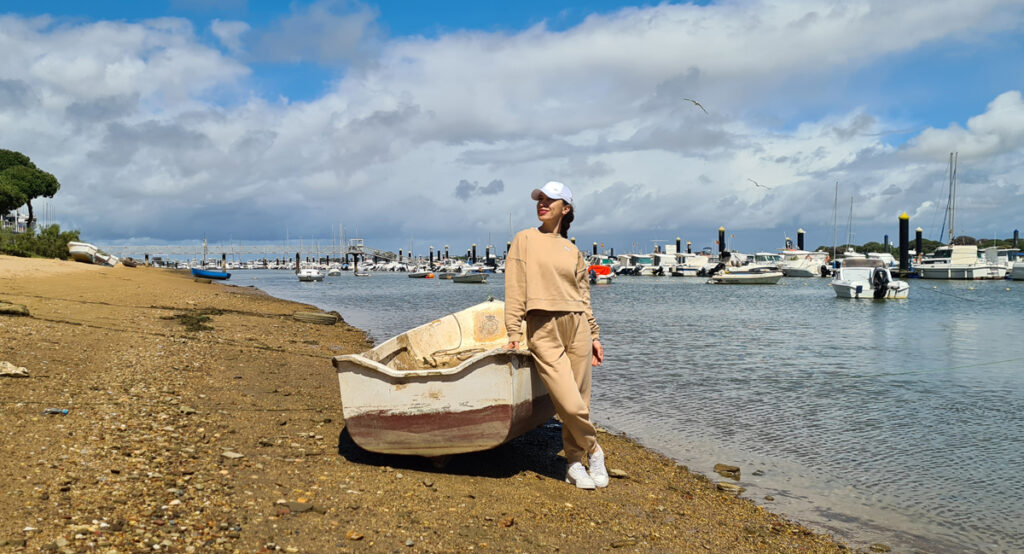
What’s the best resource you’ve found in the city of Huelva? Where can people find more information? (Ie. blogs, Facebook groups, etc)
Arbora’s online shopping referral link. If you do online shopping and want to help Arbora out 🙂
Facebook page Ayuntamiento de Huelva, they publish every week a calendar of events and also what is going on in the city.
Facebook page Diputación de Huelva they publish news and events in the towns or villages of Huelva.
Facebook group for the expats in Huelva.
Thank you for doing this interview Arbora!
Related: Where to live as a retiree in Spain? Places…and comparing Theory vs Reality
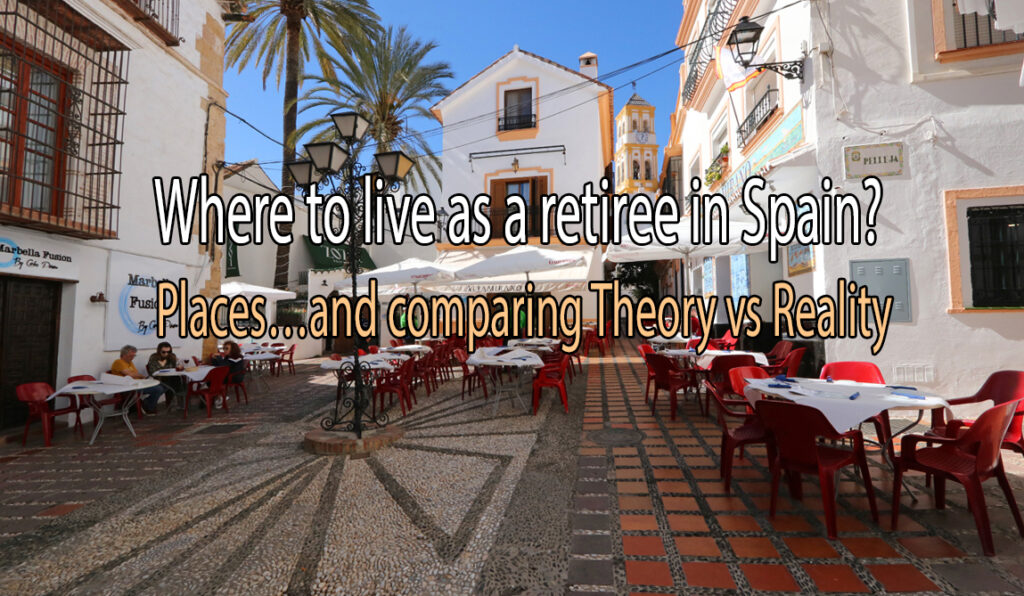
Related: Why did this couple choose Cádiz?
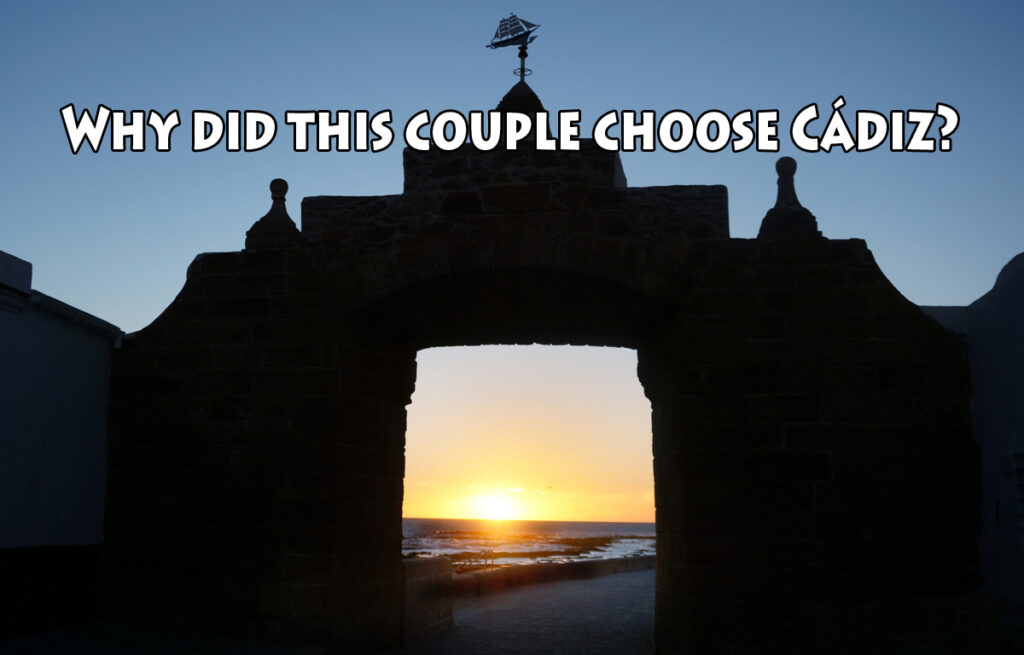
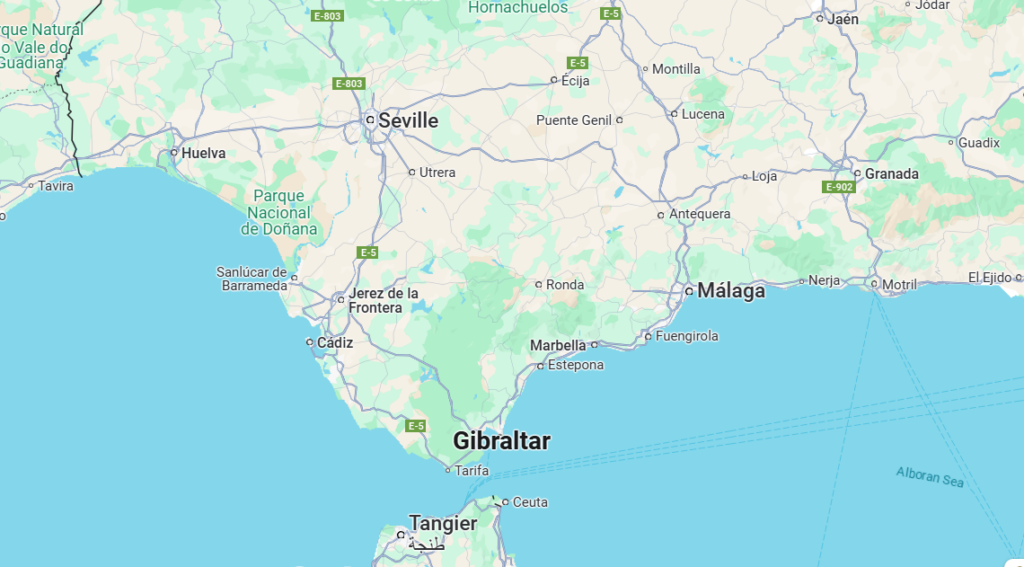

Leave a Reply